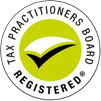australian tax return
Australian Tax Return Basics
September 2010The Australian tax return that you need to lodge yearly depends on the structure of your business whether you operate it as a sole trader, a partnership, a company or a trust.Sole traderA sole trader structure is essentially the same as the individual who owns it; thus, your personal assets may be...
How to Complete Your Individual Tax Return
September 2010Generally, all Australians who receive or earn income are required to lodge an individual tax return each financial year.Income you must declareIt is important to declare all of the income you received during the financial year, such as employment income and allowances, lump sum payments you received...
Allowed Deductions in Your Company Tax Return
September 2010When operating your business as a company, it is your duty to lodge an annual company tax return showing your taxable income and the amount of tax due on that income.Limitations of deductionsTaxable income is computed by deducting certain expenses (also referred to as allowed deductions) from your...
Basic Guide to Tax Returns Australia
August 2010Depending on the business structure you operate, you may be required to lodge different tax returns. Australian tax laws lay down specific rules and guidelines for reporting and computing amounts subject to various taxes which every business person must be familiar with or risk the assessment of penalties. Income...
Tax Returns
August 2010We prepare all types of company tax returns, as well as individual tax returns.Our challenge with every tax return is to save tax.We prepare every tax return as if it were our own!
Home Based Businesses And Home Office Expenses
May 2009If you carry out work at home, you may be able to claim a deduction for some of the expenses relating to the area that you use for business purposes. In all cases the taxpayer needs to:be able to prove that expense have been incurred and be able to establish a connection between the business and...
Why Tax Plan?
May 2009Tax planning is the process of organizing the affairs of a taxpayer so that, as far as legally or commercially possible, the liability of the taxpayer to income and other taxes is minimised. – (definition from the Australian Master Tax Guide)Some common strategies of reducing ones tax liability are:Reduce...




